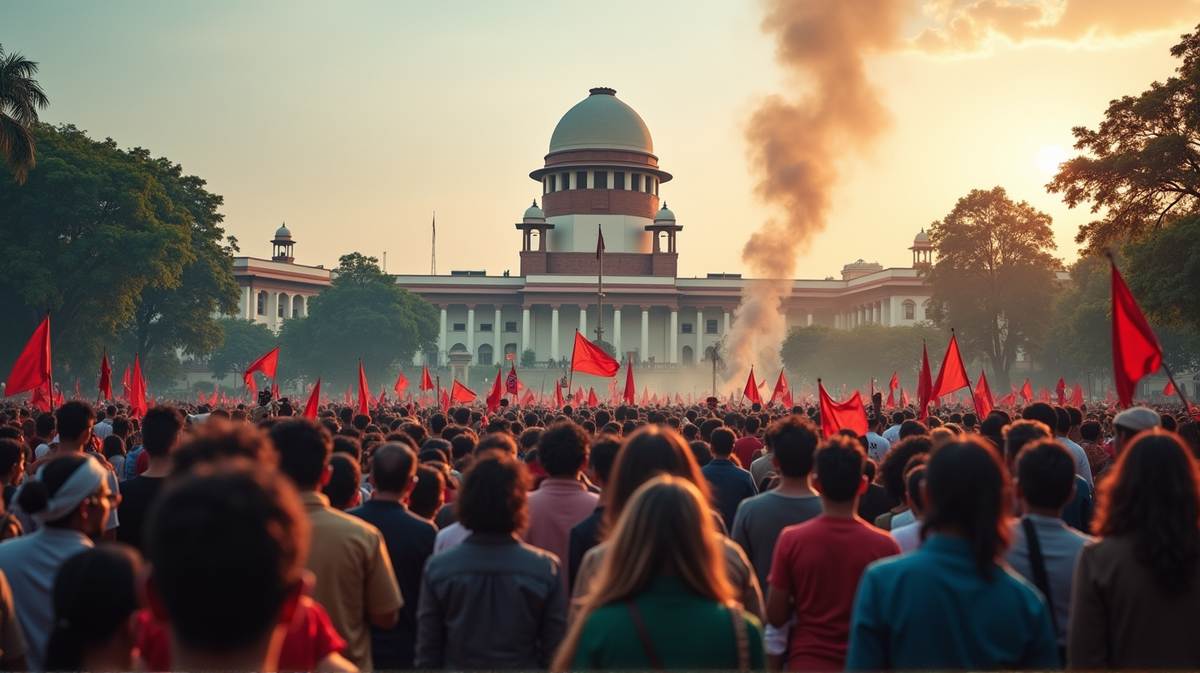South Asia: A Region on the Brink of Political Transformation
Corruption and economic mismanagement ignite calls for change across South Asia; the region faces political upheaval as new movements arise.

The political landscape of South Asia is undergoing a profound transformation, spurred by widespread dissatisfaction with entrenched bureaucratic corruption and economic mismanagement. From the bustling streets of Kathmandu to the vibrant cities across the region, a wave of youth-led and anti-elite movements is challenging the status quo. These movements signal a pivotal moment, suggesting that traditional power structures may be losing their once firm grip.
Youth-Led Movements Rising
A new generation of youthful activists is at the forefront of these movements, demanding transparency and equitable governance. They’re no longer content with archaic political practices; they’re advocating for fresh policies that promise genuine economic opportunities and democratic reform. According to Stratfor: The World's Leading Geopolitical Intelligence Platform, these youth-led initiatives are pivotal in reshaping South Asia’s future political landscape.
The Erosion of Traditional Power
As these movements gain momentum, longstanding political institutions are grappling with a seismic shift. The old guard, accustomed to operating with minimal accountability, now faces scrutiny from fervent constituencies. The challenge is clear: adapt to the growing calls for reform or risk obsolescence. These shifts herald not just a political transformation but a societal one, where citizens are more engaged than ever before.
Economic Pressures Mount
Amidst the political churn, South Asia’s economies are under immense pressure. Fiscal constraints, exacerbated by corruption and inefficient governance, threaten economic stability. These economic challenges are intertwined with the political upheaval, creating a complex web that both governments and protesters must navigate.
A Call for Greater Accountability
The clarion call from the streets is for accountability and tangible progress. Movements demand greater transparency in government dealings and fair distribution of economic resources. This shift in expectations directly impacts policy-making decisions, pushing governments toward more open and participatory governance models.
Future Implications
The future of South Asia is poised at an intriguing juncture. The path ahead is fraught with challenges yet ripe with possibilities for participatory governance and institutional reform. As these new political actors take centre stage, they carry with them the hope of a more just and equitable society. The coming years could redefine what it means to govern in an era increasingly marked by popular involvement and accountability demands.
South Asia’s story is one of transformation, resilience, and hope for a future that empowers its people and redefines its governance.





